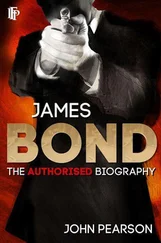Roger was well aware of the closeness between Tony and his mother, and assesses his own standing in the triangle between them with honesty: ‘There was a sort of fixation there between the two of them and I was not part of that. It doesn’t worry me. I don’t feel any lack of affection. I think I’ve come out of this very well, actually. I could have been a screwed-up mess, but I’m not because I think I accepted the special relationship between them. It really was.’ Not that everything was always well between them. Lyn Took, Tony’s secretary at the height of his fame, found it hard to discern a maternal presence at all. His friend, the actress Damaris Hayman, thought she exerted a rather unhealthy hold on him: ‘He used to say that she was very fond of “my son, the celebrity” and she sort of dined out on it, to use the phrase.’ Roger is prepared to admit that she aggravated her son at times: ‘I can understand that, because she’d go off on cruises and she’d always sit at the captain’s table and she’d come home and say, “I don’t know why I’m sitting at the captain’s table.” And I’d say, “It’s because you’re always telling everyone who you are and dishing out signed photographs of Tony into the bargain. Why else do you think you are?” She was the cruise queen. He paid for them. He was wonderful to her and rightly so because she had been so wonderful to him. From my point of view it was totally understandable.’ Hancock became resigned to the humour in the situation: ‘One day I caught her in a pub distributing signed portraits of me all around the bar all in one quick, deft movement as if she were dealing cards at Las Vegas. There they were drinking their beer and playing shove-halfpenny and suddenly before I could do anything about it, they found a Hancock picture in their hands.’ More importantly, on his Face to Face interview with John Freeman Tony described as his most vivid memory of his mother ‘the encouragement she gave me to do what I wanted to do, though I showed no sign at all of being able to do it initially’. Roger is not prepared to admit that his mother may have seen more of the father – and the vicarious realisation of his father’s theatrical dreams – in her middle son. Tony, in the same interview, acknowledged the lead his father gave: ‘I think in many ways it was a deep thing with me to try and justify it. Because I believe he was pretty good.’
Roger scarcely knew his father. His only memory is a poignant one: ‘He was going upstairs and he paused half way up on his way to the top floor. I sort of indicated that I wanted to come up with him and he said, “No, don’t – don’t come up.” By that time he was dying, but I didn’t know. Why would I know?’ Jack Hancock died of peritonitis aggravated by both lung and liver cancer at the Royal Victoria Hospital, Boscombe, on 11 August 1935. He was forty-seven and had been ill for nearly a year, the last month in the hospital. By that time the family, spurred on by the resentment shown by the brewery to Jack’s extracurricular activities as an entertainer and promoter of his own shows around the district, had moved from the Railway Hotel to their own independent venture. By August 1933 they were installed at the Swanmore Hotel and Lodge at 3 Gervis Road East, a select but neglected property within easier reach of the sands huddled beneath the East Cliff. According to his youngest son, a piece of advice handed down in the family by his father over the years had been, ‘Whatever you do, it’s your face that matters, not your arse!’ The posher new address with its wide pavements and leafy feeling away from a bustling main road met the criterion. To make it sound even more exclusive it was rechristened the Durlston Court Hotel after the preparatory school in Swanage where the eldest son, Colin, was a boarder.
Designated by its proprietors as an ‘Ultra Modern Private Hotel’, the new venue boasted forty bedrooms. Private suites could be had for 12 guineas a week and ‘Residents’ were deemed a ‘Speciality’. The ambience now had less to do with the music hall and the saloon bar and was more, as Hancock pointed out, in keeping with a Terence Rattigan Separate Tables type of existence endorsed by ‘a solid core of elderly gentlefolk who have come to the coast to see out their days on their modest means’. But the theatricals, who continued to keep their allegiance to his father, were still welcomed. This was a world where Country Life and Tatler , in which his mother advertised assiduously, jostled side by side with TitBits and the Stage . The clash between the refined respectability of one outlook and the rorty raffishness of the other would inform Hancock’s comic outlook for the rest of his life. On 7 August 1935, sadly only four days before Jack’s death, a feature article on the recently reopened and refurbished premises appeared in the Bournemouth Daily Echo and singled out its ‘unrivalled advantage of a natural environment of extreme beauty without artificiality’, adding that ‘the tender green of the lawns contrasts pleasantly with the strong white surface of the building’. The article was accompanied by an advertising feature in which all who had been involved in the renovation work displayed their calling cards. Tucked away in the bottom right-hand corner of the page was a box that read, ‘The whole of the Electrical Installations for the above by R.G. Walker.’ It gave his address as 37 Palmerston Road, Boscombe. He would soon move back to the hotel in another capacity.
Tony was eleven at the time of his father’s death and his memories were more concrete. He confided in Philip Oakes the image he cherished of his father in the back of a taxi putting himself together in readiness for his act. It is easy to see why it appealed to him. To a man who was congenitally dishevelled like Hancock the idea that somebody could reassemble himself in the back of a cab as a paragon of wedding-cake elegance was heroic. When in 1967 David Frost asked him who had most influenced him as a comedian, Tony used the question to reminisce fondly about the one occasion his father managed to top the bill: ‘It was at St Peter’s Hall (in Bournemouth). In those days a semi-professional entertainer used to wear one of those collapsible top hats and a monocle, always! There was one entrance to the hall – through the front. And he was refused admission, in spite of his gear, because he hadn’t got a ticket! He explained that he was top of the bill, and they said, “Sorry, no ticket, no entry.” So he was out. In the end, he climbed through the lavatory window. The show must go on, you know. But it didn’t go on with him again. He never got a return date.’ On another occasion Hancock added, ‘If that had happened to me, I would have gone straight home and to hell with them! But I hope he brought the house down for his pains.’
Jack Hancock was a practical joker too. A story was passed down in the family concerning another car journey. Jack suddenly turned to his friend and fellow publican, Peter Read, and with reference to a prop basket on the floor of the car shouted out, ‘It’s gone again … quick, get the flute and play it, otherwise we’ll never get it back in the basket!’ The driver, increasingly agitated, pulled up on the verge: ‘Either you get that snake back in the basket or we don’t budge another inch.’ Other memories were more sombre. He proved a trooper to the end and even in the last stages of his illness, when he was severely emaciated, Tony remembered him wrapping a sheet around his jaundiced shoulders and regaling the patrons with an impression of Gandhi. As Eric Morecambe would have said, ‘There’s no answer to that!’ His last performance had been given at a midnight matinée at Bournemouth’s Regent Theatre the previous Christmas, when he shared a bill with radio favourite Ronald Frankau and his old friend George Fairweather and tore the place down with his impersonation of Stanley Holloway delivering the monologue, ‘Albert and the Lion’.
Читать дальше












